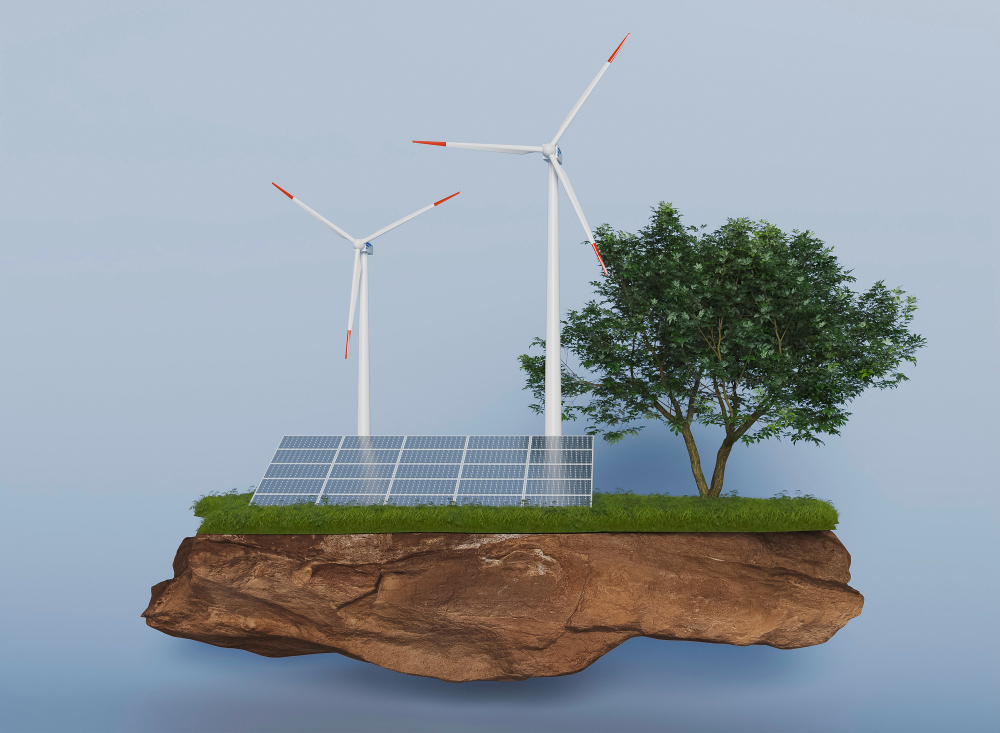Renewable energy plays a crucial role in the global battle against climate change and the quest for sustainable power solutions—a fact that cannot be emphasized enough. India, in particular, has emerged as a prominent player, making significant advancements in renewable energy capacity and clean energy investments. This article explores India’s unwavering commitment to renewable energy, its impressive strides in this field, the challenges it faces, and its pivotal role in the global shift towards cleaner sources of energy. By delving into these aspects, we gain a deeper understanding of India’s contribution to the worldwide transition towards a greener future.
I. Introduction
The importance of renewable energy cannot be overstated. As the world grapples with the adverse effects of climate change and seeks to reduce greenhouse gas emissions, renewable energy sources offer a sustainable alternative to fossil fuels. These sources, such as solar, wind, hydro, and biomass, provide clean and abundant energy without depleting natural resources or contributing to environmental pollution.
II. India’s commitment to renewable energy
India has made a firm commitment to increasing its renewable energy capacity. The country aims to reach 175GW of renewable capacity by the end of 2022 and has further increased its goal to 450GW by 2030 [1]. This ambitious target demonstrates India’s determination to transition to a greener and more sustainable energy future.
III. India’s progress in renewable energy
India has made remarkable progress in the field of renewable energy. Over the past decade, the country has experienced a significant increase in installed solar power, with a 50-fold rise [4]. As of 2022, India is the world’s third-largest consumer of electricity and the world’s third-largest renewable energy producer, with 40% of its energy capacity coming from renewable sources [5]. This achievement reflects India’s commitment to transitioning to cleaner and more sustainable sources of power.
Furthermore, India has emerged as a world leader in renewable energy. With increased investments and clean energy installations, as well as the world’s largest renewables auction market, India ranks second globally in the Climatescope report by energy [6]. This recognition further solidifies India’s position as a frontrunner in renewable energy adoption.
IV. Challenges and opportunities
While India has made significant progress in renewable energy, it faces both challenges and opportunities in further expanding its clean energy sector. The COVID-19 pandemic has posed challenges to achieving renewable energy goals, disrupting supply chains and project timelines. However, India remains committed to its renewable energy targets despite these setbacks [1].
One of the opportunities for India lies in the potential for further expansion of renewables, which could lead to a reduction in overall energy costs. Research suggests that India can go even further with renewables and achieve a greater reduction in energy costs [2]. This presents a compelling case for India to continue investing in renewable energy sources.
A. Impact of the COVID-19 pandemic
The COVID-19 pandemic has had a significant impact on India’s renewable energy sector. Disruptions to supply chains, labour shortages, and restricted mobility have affected the implementation of renewable energy projects. However, despite these challenges, India has remained committed to its renewable energy goals [1].
B. Disruptions to supply chains
The COVID-19 pandemic has caused disruptions to global supply chains, including those related to renewable energy components and equipment. Delays in the procurement and transportation of solar panels, wind turbines, and other renewable energy technologies have affected project timelines in India.
C. Project timeline setbacks
Due to the COVID-19 pandemic and associated challenges, several renewable energy projects in India have faced delays in their implementation. Construction and installation activities have been hampered, leading to project timeline setbacks. Despite these setbacks, India is taking measures to mitigate the impact and resume project activities.
D. India’s resilience and commitment
Despite the challenges posed by the COVID-19 pandemic, India has shown resilience and commitment to its renewable energy goals. The government has implemented measures to support the sector, such as extending project deadlines, providing financial incentives, and streamlining approval processes. These efforts highlight India’s determination to overcome obstacles and continue its transition to renewable energy sources.
E. Potential for cost reduction
Expanding renewable energy sources in India presents an opportunity for cost reduction in the long run. Research indicates that scaling up renewables can lead to a significant reduction in overall energy costs [2]. By leveraging economies of scale, technological advancements, and a diverse energy mix, India can achieve cost competitiveness and improve energy affordability for its population.
F. Opportunities for further expansion
India’s renewable energy sector offers ample opportunities for further expansion. The country has abundant renewable energy resources, including solar, wind, hydro, and biomass. By harnessing these resources and leveraging technological advancements, India can diversify its energy mix and accelerate the adoption of renewables. Opportunities for collaboration with international partners, investment in research and development, and policy reforms also contribute to the growth potential of India’s renewable energy sector.
V. India’s role in the global renewable energy transition
India’s commitment to renewable energy has garnered international recognition. According to the CEO of ReNew Power, India is poised to become a leader in renewable energy [3]. Additionally, India has emerged as a global leader in clean energy investment, surpassing fossil fuels for the first time in terms of investment [8]. This demonstrates India’s commitment to transitioning to cleaner sources of energy and its potential to influence the global renewable energy landscape.
A. International recognition
India’s efforts in the renewable energy sector have garnered international recognition. The country’s ambitious targets, increased clean energy installations, and commitment to sustainability have positioned India as a leader in renewable energy transition. India’s progress has been acknowledged by various global organizations and stakeholders, emphasizing its pivotal role in shaping the future of clean energy.
B. Leadership in clean energy investment
India has emerged as a global leader in clean energy investment, surpassing fossil fuels for the first time in terms of investment. This signifies the confidence of investors in India’s renewable energy sector and its potential for growth. The country’s favourable policies, attractive market opportunities, and supportive investment ecosystem have contributed to its leadership position in clean energy investment.
C. Influence on the global renewable energy landscape
India’s transition to renewable energy sources has a significant impact on the global renewable energy landscape. As one of the world’s largest energy consumers and producers, India’s commitment to clean energy sends a powerful message to other countries. India’s success in achieving its renewable energy targets can inspire and influence global efforts to combat climate change and accelerate the adoption of sustainable energy solutions.













0 Comments